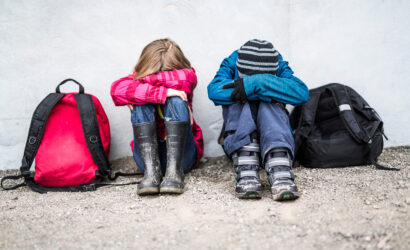Rethinking Education in a Post-Pandemic Era

Rethinking Education in a Post-Pandemic Era
By Stacy Jantzi, PHD, CAS, Regional Director, The Menta Education Group
The educational landscape is undergoing a transformation, responding to the shifts brought about by global changes. The following strategies are some that schools can embrace to bolster student engagement and motivation in the aftermath of the pandemic.
-
Emphasizing Social and Emotional Competencies:
Incorporating Social and Emotional Learning (SEL) programs into school curriculums has yielded positive outcomes, enhancing academic performance, career adaptability, and providing students with a solid emotional foundation. Social and emotional learning programs emphasize the development of self-awareness, self-regulation, interpersonal skills, and responsible decision-making, recognizing the necessity of fulfilling our emotional and social needs for effective learning. - Facilitating Peer Support:
Often, students are more comfortable sharing their innermost thoughts, including those of self-harm, with their peers rather than adults. Peer-to-peer counseling emerges as a vital solution in such scenarios, fostering a sense of companionship and mutual understanding among students.
For instance, a program might be established where trained student mentors are available for their peers who need someone to talk to, providing a safe space for sharing thoughts and feelings. This is especially important for education in a post-pandemic era. These student mentors are educated in active listening, empathy, and are knowledgeable about when to escalate a situation to a professional if necessary. This approach has proven effective in creating a sense of belonging and support, particularly when addressing thoughts of self-harm. By establishing such programs, schools can foster a caring community, ensuring that students have access to the support they need. -
Implementing Self-Regulation Strategies
Educational institutions should integrate self-regulation practices within and beyond school hours, creating spaces like refocus and calming rooms. Many students cannot self-regulate on their own and these practices help students express themselves and find calm in their environment if there’s an associative big reaction. -
Emotional Awareness at Home:
Cultivating social-emotional skills shouldn’t be confined to the school premises; it’s imperative to extend this practice to the home environment. Families can adopt various approaches to suit their dynamics, such as regular emotional check-ins or designated times for open dialogue, thereby fostering a supportive atmosphere from an early age and underscoring the significance of mental well-being.
Menta uses these strategies throughout our curriculum to help students navigate challenges with resilience and recover from the educational setbacks experienced during the pandemic. This is our commitment to reshaping education in the post-pandemic era, not just for the future, but for the present.
As we navigate through the post-pandemic era, its long-term implications on us (and especially our youth) remain to be fully understood. However, educators must be agile, ready to evolve in sync with the changing needs of the student population.





